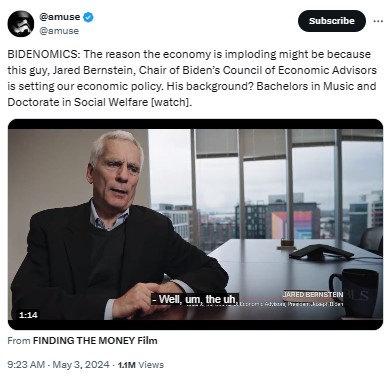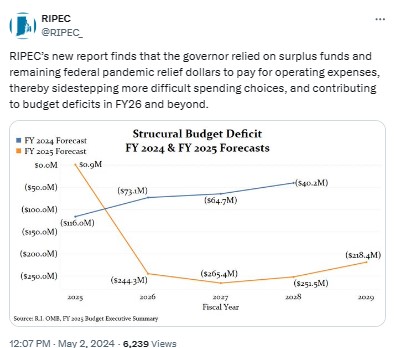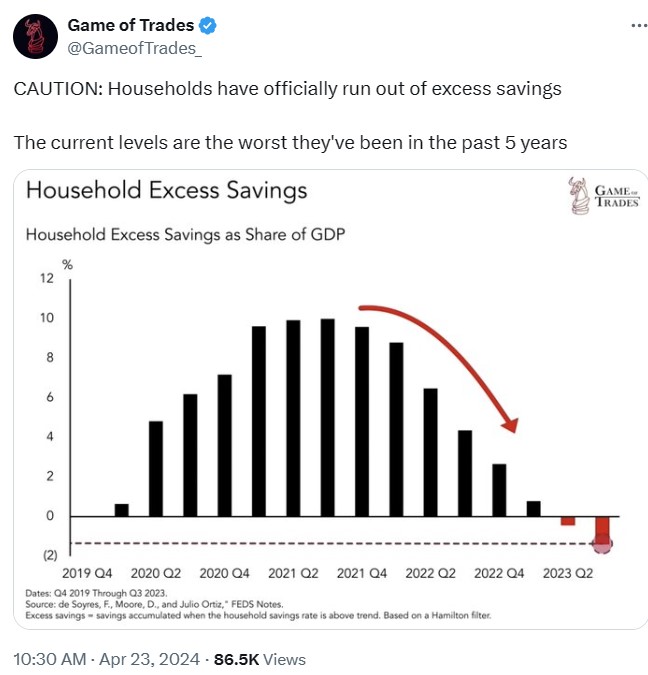The audience for Tim Ferriss‘s books and podcast is broad, but their focus is on people seeking life hacks, particularly with a business focus, especially entrepreneurial. He also sends out a weekly “5-Bullet Friday” email with interesting odds and ends, and I was shocked, recently, when I clicked through the link in the following, having prepared myself for the unsavory “unlikely source”:
“Are You Hunting Antelope or Field Mice?” I often ask myself this, and I lifted it from the most unlikely of sources. Read this in two minutes for context, and don’t freak out because of the first few paragraphs. Strong metaphors can come from all places.
What diabolic personage might “freak out” people who seek wisdom from South African trackers and hunters, study stoicism, and experiment with systems and self-deprivation to optimize their work and lives? Hitler, Mao, or Stalin? Charles Manson? Jeffrey Dahmer? Nope. Newt Gingrich.
This manifestly superficial trigger warning might be a better gauge than I’ve ever seen of the damage accomplished by handing education over to intellectual middleweights who despise our culture. This crowd will find the spirituality in gutting a fresh kill. They’ll watch movies with the darkest, most-depraved content. They’ll constrict their muscles for more-efficient workouts. They’ll lean into discomfort and pain.
Yet, apparently, in the area of politics, they are partisan snowflakes. They have been so thoroughly conditioned that the only source of evil and fear they recognize is a smart and superbly strategic member of the other party. To the contrary, they should consider Newt Gingrich to be one of them, whatever his politics!
Think of how much wisdom this handicap must cost this crowd. Think of the bizarre doublethink muck in which they must force themselves to swim to reconcile this distrust and hatred with the fact that Gingrich’s party is actually more aligned with their economic activities and the principles by which they live their professional lives.
Naturally, Ferriss’s audience would contest this assertion, which raises a fundamental contrast. The Democrats and the Left promote an image of themselves as encouraging all self-expression. In fact, the more individualized we are and the less we all have in common, the more susceptible we are to their manipulation. The major caveat is that any resulting behavior must not conflict with their ascent to power. If you learn to jump out of the way when their power requires them to trample something you hold dear, you can do anything and be accepted… especially if it fosters emotional isolation and mental illness.
Newt Gingrich is a night-terror, they insist, because his party wants to put up rigid walls. But that isn’t true. No group of tens of millions of people spanning the communities of a continent will be homogeneous, but generally, Republicans want to increase liberty. They approach this goal by limiting what government can impose and relying on non-government institutions and lower-level governments to set standards at the most-local level possible.
A while ago, I proposed a political spectrum that divides the Left and the Right according to whether one sees an equivalence between government and morality (the Left) or culture and morality (the Right). When the Left decides a moral question, its believers want the conclusion to be written into law at the highest level of government possible; that which is immoral should also be illegal, and that which is illegal is prima facie immoral.
The Right, in contrast, doesn’t see morality as particularly relevant to government. We decide morality culturally, and where it requires the force of law, we seek to make that decision out in the open as mutually as possible, according to fair and uniform rules, and over the smallest civic space possible. In this way, the law follows culture (and can change); it does not come from some external source and impose itself on culture.
In the past decade, however, I’ve come to appreciate a nuanced distinction on the Left. Yes, they hold that illegality is evidence of morality, but that doesn’t mean they feel they must articulate what is illegal and apply it regardless of circumstance. The Right wants laws written down clearly so we can all understand them, plan our lives accordingly, and adjust them when cultural standards change. But legality to the Left isn’t a set of written laws; it’s a determination of morality on which, as with “true Communism,” all human beings simply come to agree without knowing why. To constrict that undulating spirit of knowing with written laws is to accept oppression by the people who agreed to write them down.
Just this week, a Providence judge entered not-guilty filings for Brown University students arrested for trespassing, opining as follows:
Judge Nicholas Parrillo said he was going against the objections of the city of Providence and Brown University in issuing the not guilty filing to the protestors because none of them had a criminal record, and because he said he thinks they held a respectful protest.
“I think this is a reflection of what nonviolent and peaceful resistance, frankly, is supposed to look like,” he said.
Note the language. What aspects of the incident are “what nonviolent and peaceful resistance is supposed to look like”? Would a group of pro-life or pro-Trump protesters receive the same benefit of the doubt — nullifying the private university’s right to protect its property? Deniability is still plausible, at this time, but one suspects not. In the past few years, we’ve seen again and again that the only thing that’s truly illegal is to oppose progressives.
Thus, the Left has its own rigid wall, but the terror is that it is apt to move, often appearing from nowhere. Not only does it require adherence to an unpredictable stream of taboos and virtues we must signal, but failure to recognize where those lines are at any given moment can be the deciding factor for whether you are a criminal or member of the resistance and therefore untouchable by the law.
This understanding, one suspects, is behind Tim Ferriss’s care to include a trigger warning because an ideologically neutral bit of strategic advice comes from a Deplorable. Associating with the wrong types of people can mean not only being excluded from the in-crowd, but perhaps even losing access to the protection of the law.
Featured image by Justin Katz using Dall-E 40 and Photoshop AI.
[Open full post]It’s bad enough that the Biden administration has convinced a generation of young Americans that tens of billions of dollars of their debt can just disappear with no effect because the debt didn’t really exist, anyway, but the Chair of Biden’s Council of Economic Advisor’s being unable to sound coherent when asked why the government borrows money when it can print more really brings the bonfire into the house:
In fairness, it is a complex question that could be answered from multiple perspectives, but one gets the impression Bernstein doesn’t know because it’s not important to know. The primary means by which the government (in the form of the Fed) prints money is buying securities with fictional dollars.
The economy isn’t going to be pretty when everybody stops trusting that the fiction is backed by good faith.
[Open full post]On WNRI 1380 AM/95.1 FM, John DePetro and Justin Katz discuss:
- The complexity of pallet housing
- More Washington Bridge incompetence
- Fox moves back into journalism
- Russo moves out of journalism
- Shekarchi’s budget comment
- Woonsocket soaks the businesses
- Patinkin teaches RISD undergrads what they’re celebrating
- Avedisian’s plea
Featured image by Justin Katz using Dall-E 3 and Photoshop AI.
[Open full post]They limp along hoping for a catastrophe that gives Democrats in Washington, D.C., an excuse to borrow waves of cash for one-time windfalls:
It’s understandable that politicians and bureaucrats would incline this way, but it’s inexplicable that anybody continues to believe giving increasing amounts of power to people with these incentives and this history of bad judgment is a good idea.
[Open full post]Note something about the riotous behavior reaching American campuses, as Ted Gehring spotlights, here:
The last go-round of riots took place mostly in urban areas, this one has been on campuses. Granted that they’re often in urban areas, but their attack on colleges seems like the revolutionaries’ taking another step. One or two more and they’ll be in the suburbs.
This isn’t to say that people in the cities should be expected to put up with this stuff while those in the suburbs should not. (This stuff shouldn’t be happening at all.) Still, I haven’t seen much consideration of the value to a society of having enclaves and a path to greater calm and order. Instead, we get so bogged down in superficial arguments about class and race that we risk losing sight of underlying factors that make our society as dynamic as it is.
[Open full post]This video of a police interaction with a young couple entered my awareness at a moment of reduced willpower, so I watched it. Although it escalates from a towed car to an arrest and flirts with even more-dangerous outcome, the entire twenty minutes is primarily a display of young adults, feeling their economic oats, whose lessons on responding to the world were… incomplete.
One twist occurred to me, though, related to police protocol. The arresting officer was male, so when he arrested the female, he placed her in his car and then called for a female officer to drive to the scene and search her. What is the woke thinking on such things? What if the second officer weren’t biologically female, but only identified as a woman? Once this question lands on the table, things we’ve been able to take for granted become murky. Why do we think a female should be more comfortable with another female touching her body? If the woman objected to an officer who only identified as a woman touching her, would that be reasonable? Could adding these variables escalate such tense interactions to the next level?
Progressives deny it explicitly, but there is wisdom in things people just feel to be right and proper.
[Open full post]On WNRI 1380 AM/95.1 FM, John DePetro and Justin Katz discuss:
- Lunacy on campus
- Businesses’ leaving when not understood
- Scapegoating misinformation (i.e., information) in elections
- Child butchers come for Barrington kids
- Foulkes and Smiley bring reason’s last hurrah
Featured image by Justin Katz using Dall-E 3.
[Open full post]“Had the girl not broken the law by purchasing and using pepper spray, she likely would have been raped — or worse.” Sure, the story Stephen Green is sharing comes from Denmark, and sure, one big advantage we have in the United States is the Second Amendment. But policies change and, increasingly, our rights can go unprotected.
Overbearing government will come down hardest on those it can control, and we can’t afford to let it come to the point that we have to decide between protecting ourselves (increasingly often from people the government has let into the country or let out of prison with unreasonable leniency) and following the law.
[Open full post]They can be won, as James Brooke suggests in the The Sun:
In the latest sign of a rightward swing of the pendulum in Latin America, voters in Ecuador opted overwhelmingly for tough anti-crime measures, including joint army and police patrols against cocaine gangs.
Ecuador is only one example.
This reminder does not mean the border does not need to be brought to order or that the Democrats’ illegal immigration flood should be absorbed in entirety. It also does not mean Republicans should try to win immigrants’ support the same way Democrats do: by pandering to them and trying to win their votes.
Rather, Republicans should put in the effort to craft a genuine and coherent set of policies with positions many immigrants will find attractive. Furthermore, they should not dehumanize immigrants, as Democrats do when they instrumentalize and infantilize them. Rather, even when policies involve options for deportation, the humanity of people seeking a better life should never be forgotten.
Too often we lose the debate to progressives when we accept their emotionalist intellectual shortcut. The fact that somebody is deserving of compassion does not mean the appropriate actions of others is obvious. The success of the West is premised on trying to bring people into the fold and to offer them a path toward mutually beneficial relationships. Keep that always in mind.
[Open full post]







